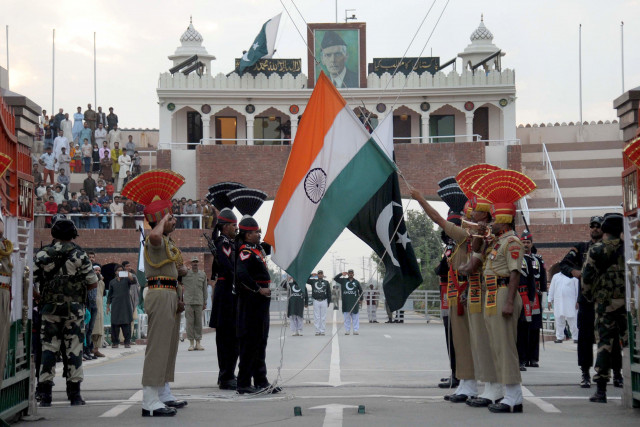Post-Mullah Omar: Experts discuss future of peace talks
Say news of Taliban supremo’s death has changed course of history

Experts say news of Taliban supremo’s death has changed course of history. PHOTO: AFP
Speaking at the seminar on Friday, ISSI head and former ambassador Masood Khan highlighted that peace and reconciliation in Afghanistan is an imperative for the people of Afghanistan, Pakistan, neighbouring countries and the international community.

“It is important to understand that peace in Afghanistan is an imperative, and not an option. In the past 30 years, the people of Afghanistan have suffered massively, but Pakistan has also suffered the brunt in the form of refugees, terrorism, extremism, drug trafficking and environmental degradation,” he said.
“The first and foremost question to ask ourselves is how important is Mullah Omar’s death? It is very important, because of the special role he was playing, and his death has various implications,” said Franz-Michael Skjold Mellbin, EU’s Special Representative and Head of Delegation in Afghanistan. “However, at the same time, it was not possible to keep his death hidden but let’s not go into how the news was released. Instead, efforts should be put in towards peace and reconciliation movement now that the news is public,” he said.

The special representative said peace talks will take a long time, with no certainty on whether the Afghan Taliban will be open to negotiations after news of Mullah Omar’s death, but urged Pakistan to make efforts for the talks regardless.
“There are two underlying issues that need to be addressed for the peace and reconciliation process; how do levels of violence come down? And what is the offer on the table, or the issues that the Afghan government is willing to talk about?” said Dr Moeed Yusuf, director for South-Asia programmes at the US Institute of Peace. He added that there is no ‘plan B’ for the international community or anyone else, if peace is to be achieved.

“If peace is to come, it has to come to the two countries, Pakistan and Afghanistan, together. It is impossible for Pakistan to be in peace while there is war in Afghanistan, and vice versa” said Sarfraz Khan, commonwealth scholar and director at the Area Study Centre (Central Asia), University of Peshawar.
Rustam Shah Mohmand, former ambassador to Afghanistan, said for the first time in 20 years the Taliban are without Mullah Omar, stressing that this has a powerful impact on the movement. “They will never be the same again in terms of policy, integrity and their moves. However, there is a danger; if the Taliban was to split into five or six branches, peace talks will become even more difficult, and therefore immediate action is required,” the former diplomat added.
Lt-Gen (retd) Asad Durrani, former head of the Inter-Services Intelligence, was confident that the Taliban would return to the negotiating table. “The answer would be yes,” he said, adding that “While they might have taken a strategic pause they will definitely be back because Pakistan will bring them back. There is nothing wishful about this statement, because there is a long history behind the fact that Pakistan always try to get the main Afghan interest,” the general explained.
Published in The Express Tribune, August 23rd, 2015.



















COMMENTS
Comments are moderated and generally will be posted if they are on-topic and not abusive.
For more information, please see our Comments FAQ